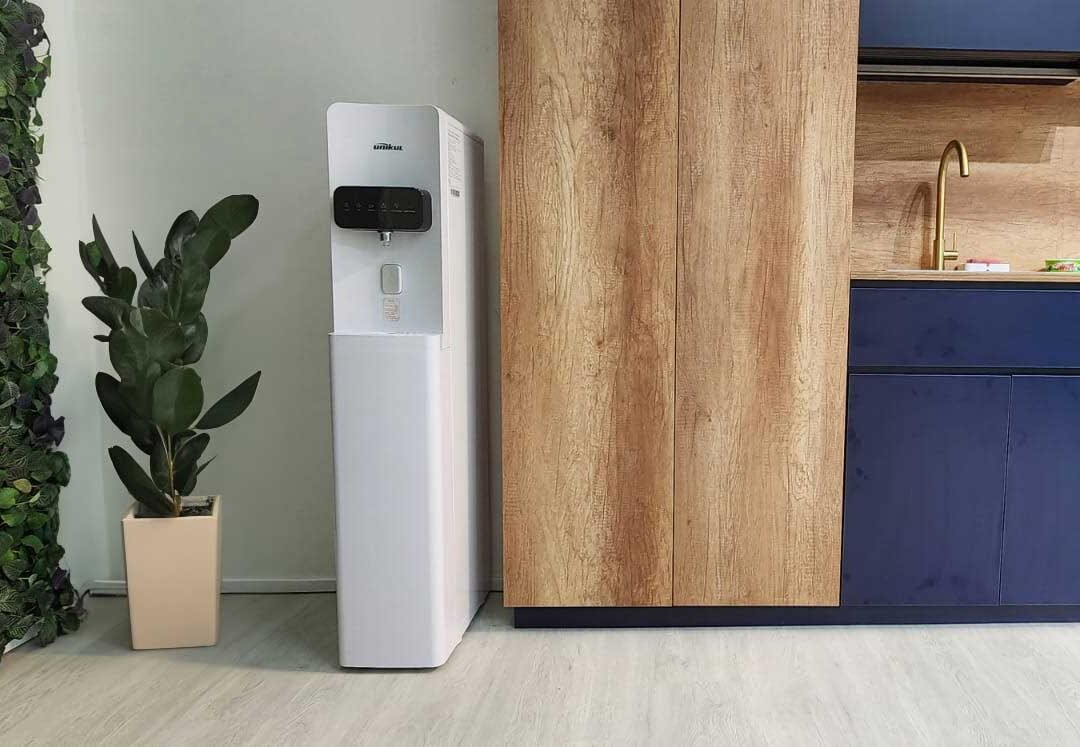Chlorine is a common additive in drinking water, primarily used for its disinfectant properties. Understanding why chlorine is added to drinking water and its impact on health and taste is crucial for anyone concerned about water quality. This article will explore the role of chlorine in water purification, its benefits and drawbacks, and how you can manage chlorine levels in your drinking water.
What is The Role of Chlorine in Drinking Water?
Chlorine serves as a powerful disinfectant, effectively killing harmful microorganisms that can cause serious illnesses. When added to drinking water, chlorine helps eliminate bacteria, viruses, and other pathogens that may be present. This process, known as chlorination, has been a standard practice in public water systems for over a century.
Why is Chlorine Used?
- Effective Disinfection: Chlorine is highly effective at neutralizing a wide range of harmful microorganisms, including those responsible for diseases like typhoid and cholera.
- Residual Protection: After the initial treatment, chlorine remains in the water supply, providing ongoing protection against potential recontamination as the water travels through pipes to your home.
- Cost-Effective: Chlorination is one of the most economical methods for large-scale water treatment, making it a preferred choice for municipal systems.
According to Singapore’s Public Utilities Board (PUB), the country’s tap water meets stringent safety standards and is treated with chlorine to ensure it remains safe for consumption throughout the distribution system.
What is The Impact of Chlorine on Health?
While chlorination plays a vital role in ensuring safe drinking water, there are concerns regarding its long-term health effects.
What are the Potential Health Risks?
- Chlorine Byproducts: When chlorine reacts with organic matter in water, it can form disinfection byproducts (DBPs) such as trihalomethanes (THMs). Prolonged exposure to these compounds has been linked to health issues, including an increased risk of certain cancers.
- Taste and Odor: Chlorine can impart an unpleasant taste and smell to drinking water, which may discourage people from drinking enough water.
- Sensitivity: Some individuals may experience adverse reactions to chlorine or its byproducts, leading to skin irritations or respiratory issues.
Despite these concerns, regulatory bodies like the Environmental Protection Agency (EPA) have established safe limits for chlorine levels in drinking water. In Singapore, PUB ensures that chlorine levels are maintained within safe parameters.
What Ways Are There to Manage Chlorine Levels in Your Drinking Water?
If you’re concerned about chlorine in your drinking water, there are several effective methods to reduce or eliminate it.
Using Water Filters
- Chlorine Filters: These filters are specifically designed to remove chlorine from your drinking water. They can be installed at various points in your home.
- Whole House Chlorine Filters: These systems treat all the water entering your home, ensuring that every tap provides chlorine-free water.
- Activated Carbon Filters: These filters are highly effective at removing chlorine taste and odor from water. They work by adsorbing chlorine molecules onto the carbon surface.
- Chlorine Water Purifiers: Advanced purification systems can effectively eliminate chlorine and its byproducts while improving overall water quality.
- Taste & Odor Removal Filters: Products like the T33 carbon filter or CTO carbon block filter are excellent options for enhancing the taste of your drinking water by removing unpleasant flavors associated with chlorination.
Recommended Products
For those looking to improve their drinking water quality by removing chlorine, consider these options available from Aqua Kent Singapore:
- T33 Carbon Filter: Ideal for taste and odor removal.
- CTO Carbon Block Filter: Effective at reducing chlorine levels and improving overall taste.
- Activated Granulated Carbon Filter: A versatile option that targets various contaminants.
- Coconut Shell Carbon Filters: Known for their eco-friendly properties while effectively removing chlorine.
Frequently Asked Questions
What is chlorine in drinking water?
Chlorine is a chemical used to disinfect drinking water by killing harmful microorganisms that can cause illness.
Is chlorine water safe to drink?
In regulated amounts, chlorine is considered safe for human consumption; however, long-term exposure to chlorinated water may pose health risks due to byproducts formed during chlorination.
How can I remove chlorine from my drinking water?
You can use various filtration methods such as activated carbon filters or whole house chlorine filters designed specifically to reduce or eliminate chlorine levels in your tap water.
What are the benefits of using a chlorine filter?
A chlorine filter improves the taste and odor of your drinking water while also reducing potential health risks associated with long-term exposure to chlorinated compounds.
Conclusion
Understanding the role of chlorine in drinking water is essential for making informed decisions about your health and hydration. While it plays a crucial role in ensuring safe drinking water through disinfection, there are valid concerns regarding its taste and potential health impacts from long-term exposure.
By utilizing appropriate filtration systems like a chlorine filter, you can enhance your drinking experience while ensuring that you enjoy clean and safe water. With options available such as activated carbon filters and whole house systems from Aqua Kent Singapore, managing chlorine levels has never been easier. Ultimately, taking proactive steps will help you maintain optimal health while enjoying the benefits of purified drinking water free from unwanted chemicals.
Citations:
[1] https://www.ncbi.nlm.nih.gov/books/NBK234590/
[2] https://www.homewater.com/blog/expert-picks-7-best-water-filters-to-remove-chlorine
[3] https://olympianwatertesting.com/pros-and-cons-of-chlorination-in-drinking-water-treatment/
[4] https://atlas-scientific.com/blog/chlorine-in-drinking-water/








